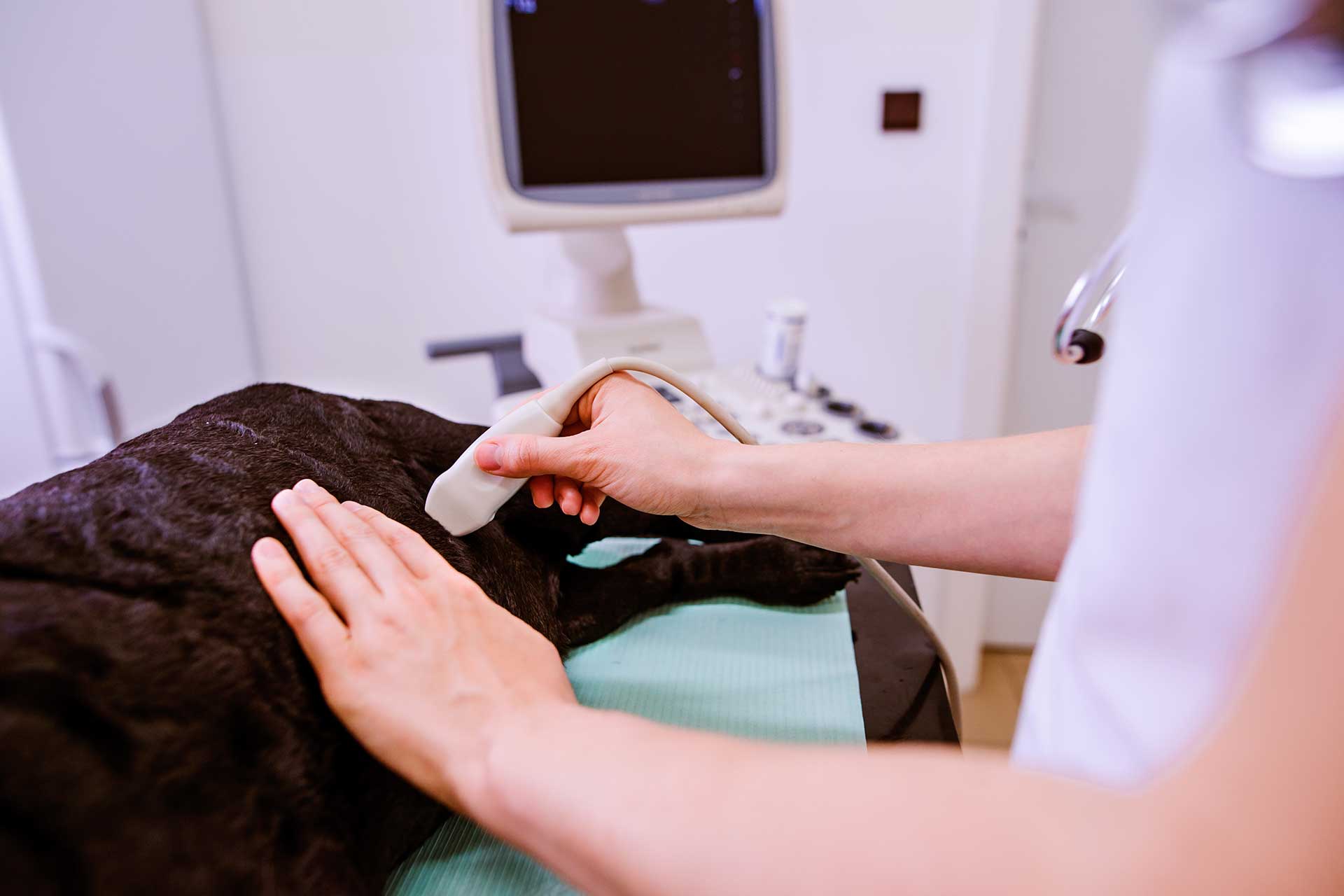Parasites are creatures that live in, or on, animals (including humans). Parasites feed off their hosts; in animals, they are usually found on or below the skin, and occasionally internally.
The most common pet parasites in Australia are heartworm, fleas, intestinal worms and ticks. Your furry companions need to be protected against these parasites. The AdelaideVet Total Wellness Plan provides comprehensive year-round parasite protection for your furry family member.
Learning the signs, symptoms and preventative measures against parasites will help keep your pet healthy and parasite free. If you are worried about your pet book an appointment at any of our 16 convenient locations across Perth or call our friendly healthcare team for advice.
What Are the Most Common Parasites on Pets?
Heartworm
Heartworm is a parasitic worm that grows and reproduces in your pet’s organs, feeding on surrounding blood. Although they start out small, worms can grow up to 30cm long and 2cm thick in populations of up to 200.
Cats, ferrets and especially dogs are most susceptible to heartworm infections.
Mosquitos inject the larvae (called microfilariae) under your pet’s skin, which then spends 5-6 months maturing and moving through your pet’s organs to the heart and blood vessels in the lungs. Once they reproduce the new microfilariae are picked up by mosquitos and the cycle continues.
Signs and symptoms
Heartworm develops slowly but can be fatal if left untreated. By the time pets start to show signs, at least half their lungs are infected. Warning signs include:
- Dry and persistent cough
- Lack of stamina when exercising
- Weight loss
- Dry coat
- Listlessness or weakness
Symptoms of more advanced infection include:
- Heart failure
- Distressed breathing
- Distended abdomen
- Organ damage
- Sudden collapse
Fleas
Fleas are the most common parasites we see on our pets. They are small brown parasitic insects that infest your pet’s coat and skin. Because they can jump 150 times their own length, fleas spread quickly between animals. Most people think fleas are merely irritating, however, they can cause skin infections, spread tapeworm and cause anaemia in young dogs.
Fleas can even bite humans!
Signs and symptoms
Signs your pet has unwanted hitchhikers include:
- Increased scratching, licking or biting
- Visible irritation
- “Flea dirt” or specks of black grit
- Red patches of skin
- Hair loss
- Visible fleas on the coat
Flea eggs lie dormant in carpet, furniture, clothing and sand but spread quickly when they hatch. Eradicating fleas means breaking the life cycle before they have a chance to breed, which can be tricky to manage.
Intestinal Worms
Pets can become infested with tapeworm, hookworm, roundworm, and whipworm. Worms can cause serious health problems, especially in puppies and kittens. Both cats and dogs need to be regularly wormed from a young age.
Some worms can even transfer to humans and cause concerning health issues, especially for children and the elderly.
The AdelaideVet Total Wellness Plan includes intestinal worming treatments delivered right to your door every month, plus heartworm and flea protection.
How do pets get worms?
Dogs and cats can pick up worms through a number of ways including:
- Eating worms, eggs or their larvae – parasites like hookworms and roundworms can live in the environments your pet also inhabits like your backyard or the local park. Sniffing, exploring and playing with toys are ways pets can pick up worms from the outside world. Eggs can remain dormant until they are accidentally ingested by your pet.
- From grooming – including licking their paws that may have come into contact with a contaminated surface or that have latched onto your pet’s coat.
- Other infected animals – your pet can pick up worms from infected animals such as rodents, birds, other dogs and cats, sheep and livestock. Keep on eye on your pets and prevent them for scavenging.
- From fleas – Swallowing fleas from grooming can lead to tapeworm infestations, so keeping up with flea prevention is essential.
- From mother to pup – roundworms can be transmitted from an infected mother to the unborn pups via the placenta.
Signs and symptoms
In many cases, worms are too small to spot but there are some things to look out for:
- Small white flecks (worm eggs) in faeces
- Dogs scooting across the floor
- Worms that look like rice clinging to hair, especially around the rear
- Excessive licking of the rear
Following the worming regimen set out by your AdelaideVet vet is crucial to protecting your pet’s health, and your family.
Why Is Parasite Prevention Essential?
Parasite protection can include topical applications, injections, collars, tablets and chews. Preventing your pets from contracting a parasite is not only essential for their health and wellbeing but also for you and your family. Parasites can be transferred to humans, so we definitely want to avoid our pets passing on these nasties to our family!
What Do I Do If My Pet Is Affected?
Different parasites require different treatments. If your pet is affected by parasites and you are not sure what to do, contact your nearest AdelaideVet healthcare centre for immediate attention.
Find your nearest AdelaideVet here or book an appointment online.
Many parasite treatments can be applied or given at home. With the Total Wellness Plan, you will always have your pets monthly dose delivered right to your door so you don’t need to worry about when it’s due or getting to the shop. Convenient and affordable parasite control and giving your pets the best chance of living parasite free!
Should I Get The Total Wellness Plan?
The AdelaideVet Total Wellness Plan is an annual plan designed to give your furry friend preventative healthcare year-round. It is a convenient and affordable way to protect your pets from parasites for a happy and healthier life.
Depending on the plan you choose, you will save on veterinary care and receive:
- Annual vaccination
- 12 months Intestinal Worming
- 12 months Flea Prevention
- 12 months Heartworm Prevention
- Monthly doses delivered to your door
- Unlimited consultations* & advice
- $50 off professional services voucher**
- 20% off Cat Boarding***
* Does not include specialist consultations and ancillary services.
** For Classic plan members only. Valid for: Sterilisations, Surgery, Dentistry and Imaging (excluding external referrals).
*** For Classic plan cat members only.





